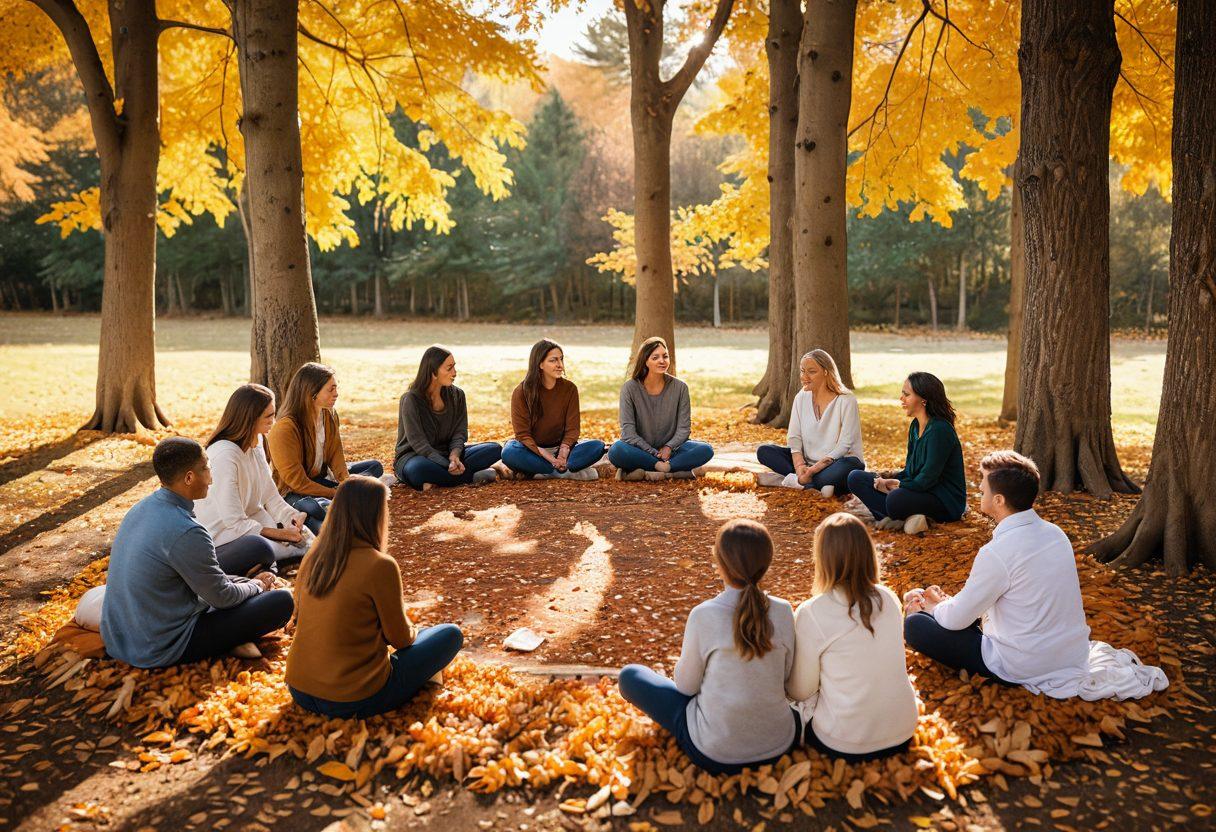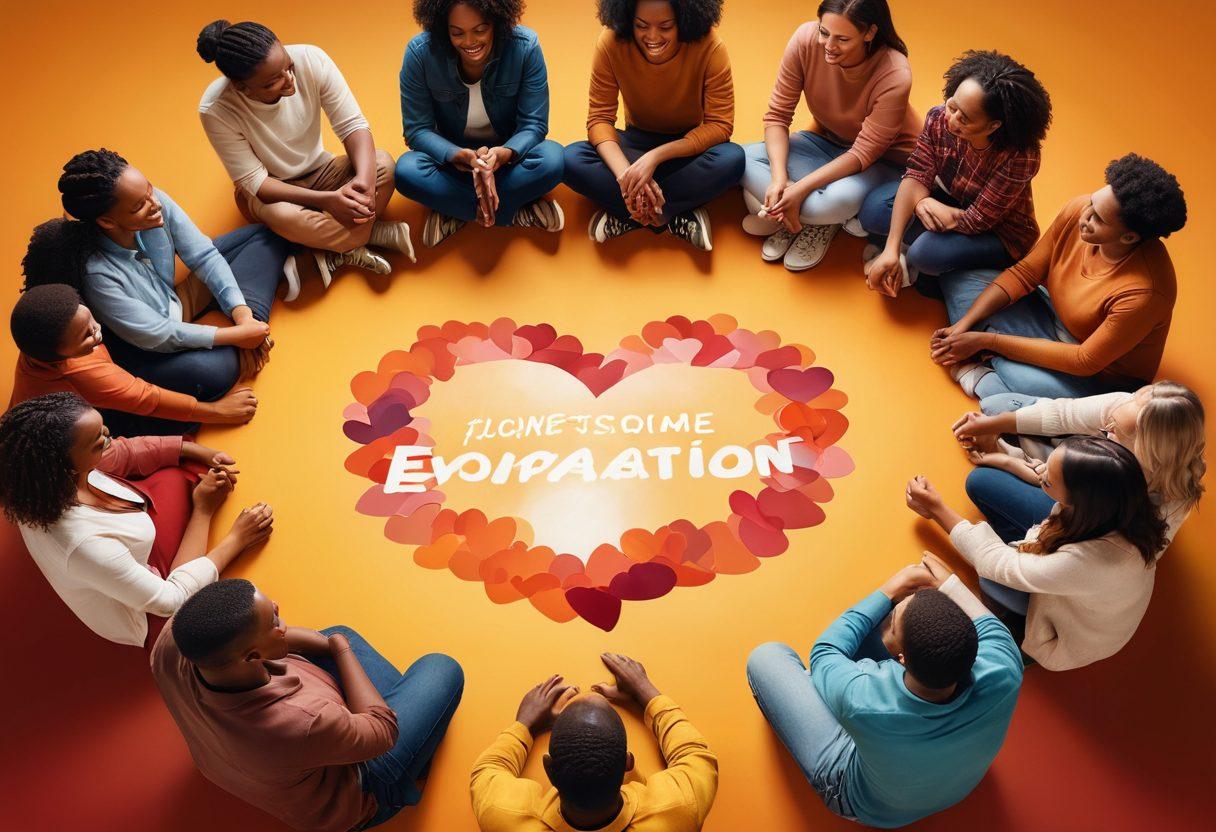Navigating the Year of Loss: A Guide to Support and Community Engagement in Times of Sadness
Life has a way of throwing unexpected challenges at us, and navigating the waves of grief connected to a loss can feel overwhelming. As we contemplate the yearly cycle of remembrance—a time that may amplify feelings of sadness—building resilience becomes vital. In these moments, community engagement can serve as a powerful antidote to loneliness and despair. How can we transform our grief into a source of strength and purpose? The answer often lies in the connections we build with others, in finding our place within a supportive community.
Imagine a grieving parent who finds solace through an annual charity event dedicated to raising mental illness awareness. This charity organization doesn’t just raise funds; it creates a network of individuals who share similar experiences and who understand the deep currents of sadness associated with loss. Participating in such initiatives can be instrumental not only in emotional support but also in educating others about the impact of mental health. Can a simple event really alter the course of our emotional journey?
Community engagement opportunities abound, whether through volunteer organizations, support groups, or social support initiatives. These activities not only foster a sense of belonging but also provide actionable ways to honor loved ones. Seek out local non-profit organizations that focus on grief support and psychological health; they often host annual events that not only commemorate but also provide avenues for individuals to release their emotions productively. After all, isn’t it comforting to know that others may walk a similar path?
Participating in awareness campaigns—be they founded in memory of loved ones or designed to uplift those currently navigating grief—is not only an act of advocacy but a profound self-care strategy. When we share our stories and connect with others, we begin to dismantle the notion of isolation that often accompanies sadness. By engaging with community outreach efforts, we open up conversations that can shed light on the realities of mental wellness and the importance of emotional support during tough times. Could sparking discussions around grief create a nurturing environment for healing?
As we build resilience through shared experiences, let's remember the power of community service. Volunteering in grief support projects or engaging with charitable support initiatives can create lasting impact—both for us and for those we seek to help. Together, we can cultivate a culture of empathy and awareness that not only celebrates our loved ones but also strengthens our psychological health. So, how will you take that brave step towards community engagement and turn your sadness into support that resonates not only for this year but beyond?
Compassion in Action: The Importance of Support Groups and Charity Organizations
In a world often marked by triumphs and celebrations, the Year of Loss reminds us that sadness is also a part of our shared human experience. Each annual event that rolls around can serve as a poignant reminder of the emptiness left by those we've lost. As we navigate through this profound challenge, the importance of compassion can't be overstated. It's not just about feeling for one another; it's about acting on that feeling, transforming our compassion into tangible support through grief support and charity organizations.
Imagine a community where everyone understands your struggle, where every voice echoes the sentiments of loss, and every tear is met with a sympathetic hug. This is the power of support groups—they create spaces for healing. Whether it's sharing memories in a circle or engaging in mental wellness workshops, these gatherings offer a sanctuary for emotional support. Have you ever attended a support group? If so, you probably felt a mix of vulnerability and relief—two emotions that sit together as you navigate the landscape of grief. What if this kind of environment flourished in every neighborhood?
Charity organizations and non-profit organizations play a vital role in promoting community engagement and fostering a culture of empathy and giving. When you actively participate in community outreach through charitable support, you not only help those in need but also nurture your own psychological health. By volunteering, you're not just giving; you're also receiving the powerful gift of human connection that sparks healing from personal sadness. How often do we forget that in helping others, we help ourselves?
In this year of sadness, we can all take steps to promote awareness campaigns around mental illness awareness. Advocacy groups thrive on conversations and education, making mental health topics accessible rather than taboo. Imagine launching a community service project aimed at building awareness around grief and emotional health—it could ignite conversations that lead to healing. Could your personal story inspire others to join this cause? What could it look like if everyone brought their voices together?
Let's remember that the journey through grief doesn't have to be walked alone. With community support, every step becomes more manageable. By establishing a network of social support, such as peer-led support groups, we can create avenues for collective healing. As we engage with community resources, we contribute to a profound tapestry of compassion that binds us together, transforming support into action. This isn’t just about surviving a year of loss; it’s about awakening a community with love, understanding, and proactive emotional support. Are you ready to be part of this unforgettable journey?
Transforming Sadness into Strength: Strategies for Emotional Wellness Through Community Outreach
As we embark on another year, the weight of sadness can often feel like a persistent companion. Many people will experience loss, whether it's the death of a loved one, the end of a relationship, or the loss of a job. In times of hardship, transforming sadness into strength can feel daunting, yet it is possible. Engaging with your community can be a powerful tool for emotional wellness. By reaching out to others and offering support through community outreach, you not only aid your own healing process but also contribute to the psychological health of those around you. After all, as the saying goes, ‘Alone we can do so little; together we can do so much.’
Imagine a neighborhood where emotional support thrives, where charities and non-profit organizations pull together to create a network of support that transforms sadness into something impactful. This is not just a dream but an achievable reality through social support and community engagement. By participating in local annual events, you can foster connections with others who share similar experiences. Whether it's a charity run dedicated to mental illness awareness or a community service day focused on helping those in need, these activities help dissipate feelings of isolation and can ignite a sense of belonging. What events have you participated in that made a difference in your emotional journey?
Grief can often feel like an unwelcome visitor, lingering long after its arrival. However, by joining a support group or engaging in a mental health education workshop provided by local volunteer organizations, you can find a safe space to share your thoughts and emotions. Advocacy for mental wellness not only helps you process your grief but also empowers you to educate others about the importance of mental health. Isn’t it inspiring to think that your personal journey through sadness can inform and encourage others? It’s this interplay of support that transforms personal grief into collective healing.
In times of struggle, every gesture counts. Whether you're lending a helping hand at a food drive or donating time to a charity organization, community outreach paves the way for a stronger sense of purpose and belonging. It could very well serve as the much-needed reminder that we are not alone in our struggles. Volunteering provides a dual benefit; it engenders a feeling of fulfillment while also providing practical emotional support for those in need. Isn’t it interesting how helping others can heal our own sadness in unexpected ways?
If you ever feel overwhelmed by sadness or loss, remember that seeking help is a sign of strength, not weakness. Reach out to your community; there is a vast array of resources and groups ready to embrace you with open arms. From awareness campaigns focused on breaking the stigma surrounding mental illness to local charities that offer solace, the avenues for support are plentiful. Embrace the transformative power of community as a vital component of your journey toward healing. Reflect on the friends, family, and organizations in your life. How can they lend a hand, and how can you provide the same in return? After all, turning sadness into strength is not a solitary journey, but one we can embark on together.


